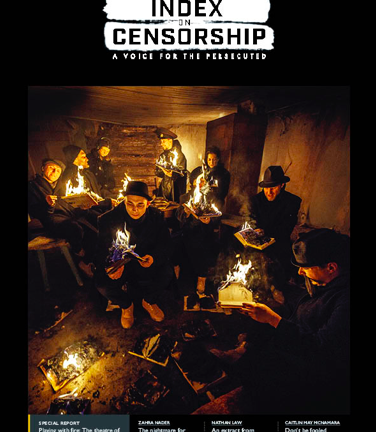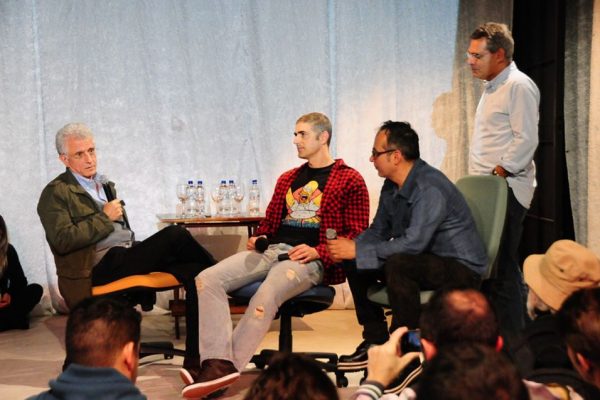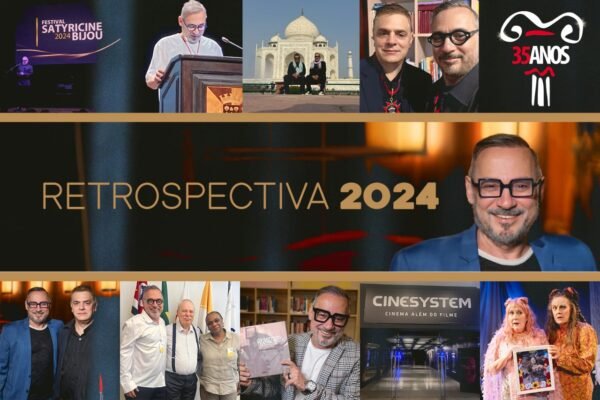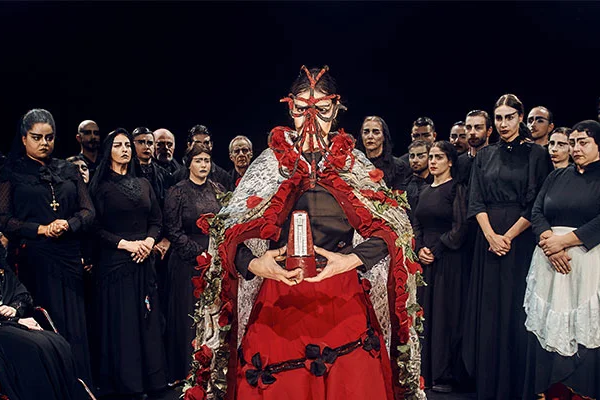A presidential decree that art must be ‘sacred’ has cast a free-speech shadow over Brazilian theatre
GUILHERME OSINSKI and MARK SEACOMBE report
Jair Bolsonaro, the populist right-wing president of Brazil, has put the fear of God into playwrights and theatre companies across the nation.
While the overt and ruthless censorship of the military dictatorship that ended in 1985 is now history, theatre today has to comply with a nebulous concept known as “sacred art” or be starved of public funds.
Bolsonaro came to power in 2019 on a promise of “Brazil above everything, God above all” and was soon issuing a veiled warning to the theatre world that “certain kinds of works” would not be tolerated.
“We won’t chase anyone, but Brazil has changed,” he said. “With public funds we won’t see certain kinds of works here. This isn’t censorship, this is preserving Christian values, treating our youth with respect, recognising the traditional family.”
In order to qualify for the public money on which theatre depends, plays and playwrights would now need to adhere to “sacred art”. And representatives of this “sacred art” would make decisions about funding under the federal Rouanet law, introduced in 1991 to provide funds for art and culture, including film. In a country that is nominally 81% Christian, “sacred” could mean only one thing.
Although Bolsonaro’s government is not imposing direct censorship, it is systematically dismantling theatre in Brazil by cutting off funding, according to Jader Alves, a theatre director at Lala Schneider, in Curitiba, capital of the southern state of Paraná.
“The federal government is pushing theatre into a corner,” he says. “Not enabling incentive mechanisms to obtain financial resources is still censorship. If you’re not supporting that area, maybe you don’t want it to go forward.”
And all this is during the Covid-19 pandemic, which, he says, has “killed” Brazilian theatre.
His views are shared by Ivam Cabral and Rodolfo García Vázquéz, founders in 1989 of the renowned theatre company Os Satyros in São Paulo, the biggest city in Brazil.
Ignorance has reached a point that is unacceptable. We are scared
Asked if there is censorship affecting national theatre, Cabral says, without hesitation: “The answer is ‘Yes’ – in big capital letters.”
One victim of censorship was Caranguejo Overdrive, an overtly political play, produced by Aquela Companhia de Teatro, which was critical of Brazilian presidents including Bolsonaro. A performance scheduled to celebrate the 30th anniversary of the state-run Bank of Brazil in 2020 was cancelled after the federal government in Brasilia intervened, but it was staged elsewhere later, including in Rio de Janeiro.
Plays which question the government or its right-wing values are not even considered for funding under the Rouanet law.
“This is a witch-hunt way of doing things. It’s too sad,” says Cabral. “We started to see religious theatre, religious music.”
For Vázquéz, the viciously homophobic Bolsonaro is systematically attacking and censoring minorities, including the LGBTQ community.
And Alves says that, in the eyes of the president, homosexuality is associated with pornography and promiscuity and not seen as a suitable subject for theatre audiences with Christian values.
After the introduction of God and “sacred art” into the Rouanet law, there has been another regressive change whose meaning is less than clear. One of the law’s purposes had been to help to eradicate prejudice and discrimination in all its forms. But in July 2021, this was altered and now it seeks to promote cultural citizenship, artistic accessibility and diversity.
“This is vague,” says Alves. “We have diversity, but what does it mean? Are you talking about cultural diversity, sexual diversity? Previously we had explicit terminology. For me this is censorship – very veiled, of course.”
Vázquéz says public notices from the federal government make clear that it favours, and prioritises, religious plays – especially those praising the traditional family.
“Ignorance has reached a point that is unacceptable. We are scared. It looks as if we are living in the 19th century.”
How did Brazil get to this point? To understand how South America’s most populous country – 212.5 million people at the last count – arrived here, it helps to look back at the history of Brazil, where culture has never been one of the government’s big concerns, says Alves.
Censorship of theatre today was linked to the country’s past and to colonial rule under the Portuguese.
“When John VI of Portugal [King of Brazil from 1816 to 1822] arrived here, he built opera houses, which didn’t exist in Brazil, and then he had theatre companies brought from Lisbon to perform for him,” he says. “Instead of fostering the development of local companies, he found it easier to bring it from Portugal.”
For this reason, local art was not encouraged; nor were the conditions created for it to flourish, and to be appreciated, across the country.
Cabral concurs. “We have no memory. What Brazil has already produced from geniuses is impressive,” he says. “Even Satyros is much more respected outside Brazil. Here it seems that we are just another one out there.”
In the dark days of the military dictatorship between 1964 and 1985 – when an estimated 20,000 people were tortured and hundreds killed – the arts were heavily censored through the Department of Federal Censorship.
After the fall of the regime, the arts were liberated and, in 1985, Brazil set up an autonomous Ministry of Culture for the first time. But one of Bolsonaro’s first acts in 2019 was to abolish it.
“The Ministry of Culture was reduced to a secretary,” says Cabral. “Progressive programmes are being decimated and thrown out of the door like rubbish. To recover from it, and everything that surrounds this idea, will take a few generations.”
Vázquez says: “If we relied on the federal government’s political project for culture, we would have only gospel shows and movies about the Bible – an extremely reactionary project.”
For Alves, the Bolsonaro government’s message is clear: “They tell us that what you do is not important.”
But in the face of all these obstacles, Brazilian theatre remains defiant.
“We are being questioned,” says Cabral. “It’s very important that we don’t shut up, that we denounce, because the world needs to be reinvented. It is up to us in the theatre to educate the public. Not giving in is essential.”
Fonte: Index on Censorship, 12 de janeiro de 2022




